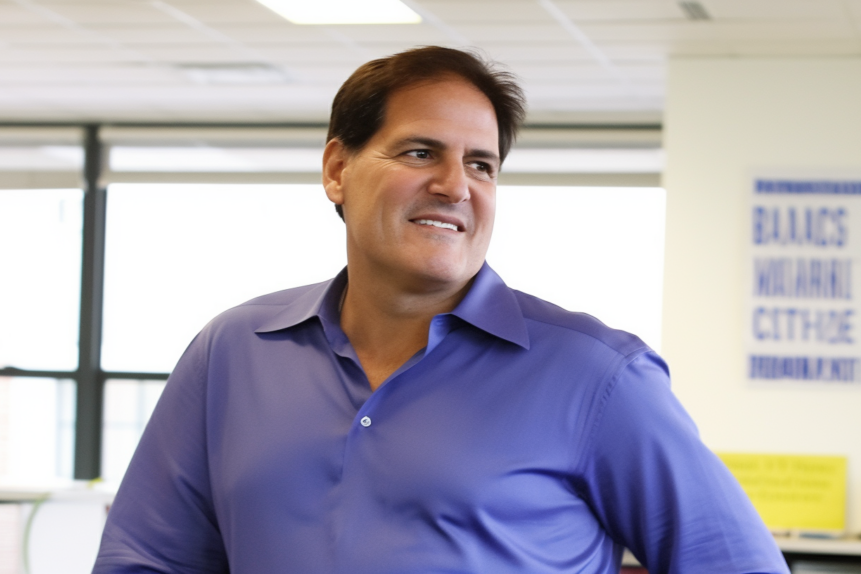Mark Cuban’s bold claim that Warren Buffett’s famous buy-and-hold strategy is a “crock” has reignited debates within the investing community.
Cuban, known for his unapologetic views and a net worth surpassing $5 billion, isn’t shy about challenging established investment philosophies. His thoughts on diversification, particularly, stir the pot among traditional investors, with a growing number backing his aggressive approach.
Don’t Miss:
According to Buffett, “diversification is a protection against ignorance,” a guiding principle that’s long been at the heart of his investment strategy. Buffett’s approach leans on the idea that spreading your money across various assets can shield against market downturns.
For many retail investors, index funds are the go-to for diversification. These funds mimic broad market indexes to provide a stable, if not flashy, return over time.
On the other hand, Cuban cuts through the noise with a more concentrated strategy. He’s famously said that “diversification is for idiots” and that the buy-and-hold strategy embraced by Buffett devotees is essentially worthless.
Trending:This Adobe-backed AI marketing startup went from a $5 to $85 million valuation working with brands like L’Oréal, Hasbro, and Sweetgreen in just three years – here’s how there’s an opportunity to invest at $1,000 for only $0.50/share today.
Cuban’s view resonates with some investors who are laser-focused on beating the market rather than merely matching it. According to Morningstar research, professional money managers who outperform benchmarks often make big, bold bets – not by playing it safe with a diverse portfolio.
For investors grappling with which billionaire to follow, a look at the numbers might help. Cambridge Associates’ 2017 study supports diversification: “Diversified portfolios still prevail over the long term,” the report says, suggesting that a diverse strategy might cushion portfolios against severe market drops and provide more consistent returns over decades. This echoes Buffett’s success with slow and steady wealth-building.
Trending: Warren Buffett once said, “If you don’t find a way to make money while you sleep, you will work until you die.” These high-yield real estate notes that pay 7.5% – 9% make earning passive income easier than ever.
But not everyone is convinced. Cuban’s strategy, which focuses more on tech and innovative industries, has paid off handsomely in a world increasingly reliant on technology. He believes focusing on a few high-conviction bets will generate better returns, a sentiment shared by other billionaire investors.
Real estate often emerges as a contender for those seeking alternatives to the traditional stock market. High home prices and mortgage rates have made owning property trickier, but the allure of steady rental income hasn’t faded.
See Also: ‘Beating the market through ethical real estate investing’ — this platform aims to give tenants equity in the homes they live in while scoring 17.38% average annual returns for investors – here’s how to join with just $100
Meanwhile, data from Nareit shows that commercial real estate offers steady returns and lower volatility than stocks. The numbers speak volumes – commercial real estate has a lower correlation to the S&P 500, making it a useful hedge for many investors.
And if real estate doesn’t entice, fine art might. According to data from the Citi Global Art Market chart and as cited by CNBC, contemporary art outperformed the S&P 500 over the last two decades, with annual returns of 11.5% compared to the market’s 9.6%. Cuban’s strategy might inspire you to look at alternatives like blue-chip art, which offers unique opportunities beyond stocks.
Read Next:
Market News and Data brought to you by Benzinga APIs
© 2024 Benzinga.com. Benzinga does not provide investment advice. All rights reserved.

